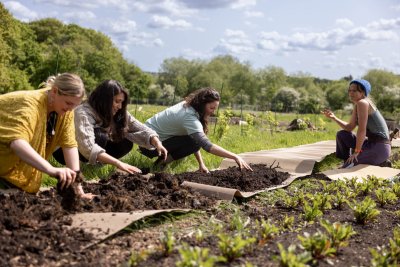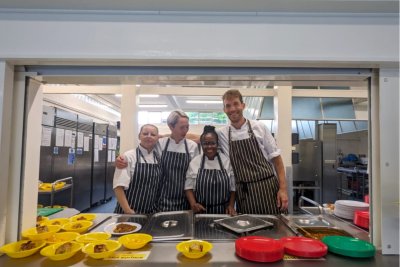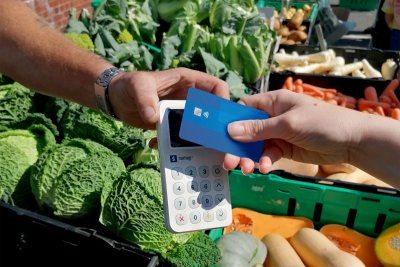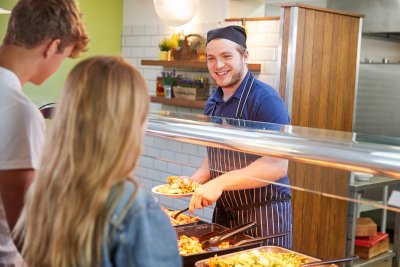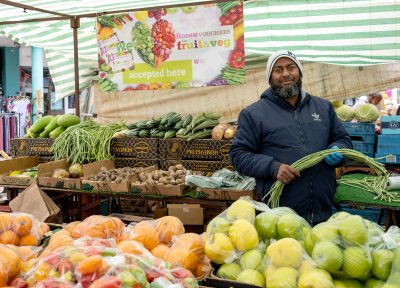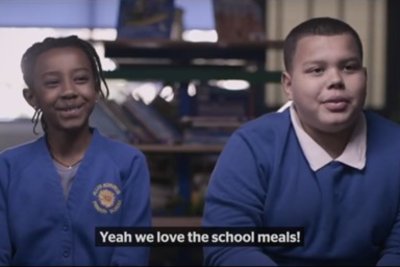News • Good Food Trade Campaign
Food for schools, hospitals and frontline charities must be protected from no deal Brexit, says Sustain
Sustain has issued a warning that in the event of a no deal Brexit, food supplies to schools, hospitals, care homes and frontline charities must be protected so that vulnerable people don’t go hungry.
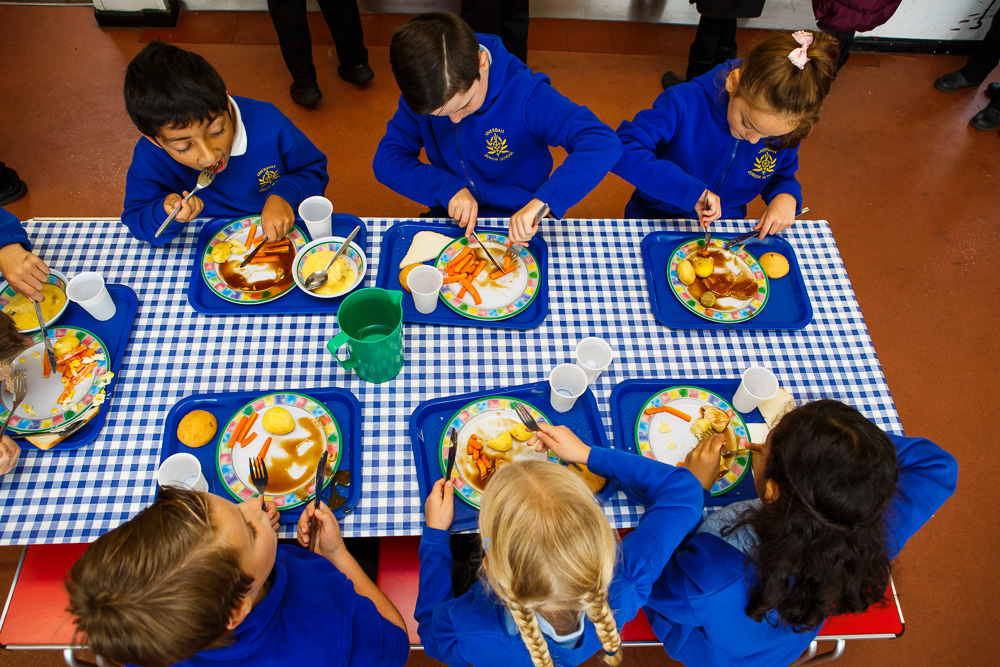
The Press Association and the New European picked up on our Brexit resilience report which flagged that spikes in food prices could hit institutions that feed millions of people every day particularly hard, because they do not have the flexibility to pay more or vary menus. In general, public institutions also typically have little spare money or storage space to stockpile food, and risk losing out to commercial buyers in competition for supplies at a time of scarcity.
Sustain is also concerned that organisations that support vulnerable people living in extreme poverty, through food banks and community groups, for example, could see supplies of donated food dry up, as supermarkets find it easier to sell products nearing their sell-by date.
Kath Dalmeny, chief executive of Sustain said: "In January, the Scottish Government allocated £500k Brexit contingency funds to help frontline charities access the food they need, such as hostels for homeless people, children’s breakfast clubs, lunch clubs for older people and domestic violence refuges. In Westminster? No such promises. So what are frontline charities expected to do?”
Sustain published its report a week before unconfirmed reports from a Brexit Cabinet committee suggested the Government is preparing a hardship fund for people vulnerable to the disruption expected if the UK leaves the EU without a deal on March 29.
Kath Dalmeny continued: “We have been dismayed at how little Government has so far considered the impact of a no deal Brexit on the food supply for people most in need. Millions of people are likely to struggle to afford ‘no deal Brexit’ food price inflation at the levels now predicted by government ministers, the food industry and economists. This is not scaremongering, it is hard-nosed food reality, and Government must make money and other support available to ensure that no one goes hungry.”
Bank of England governor Mark Carney warned MPs in December that food prices could surge by up to 10% if the UK crashes out of the EU but based on conversations with suppliers, Kath Dalmeny believes there could be a hike of as much as 20% on core food categories for public sector institutions like schools and hospitals.
She continued: "With public sector institutions spending £1 billion per year on food, HM Treasury must ring-fence sufficient funds to guarantee that school children, hospital patients and elderly people in care or receiving meals-on-wheels continue to receive the essential food they need, whatever the impact of a no-deal Brexit."
Food services that Sustain believes are at risk of being impacted by a no-deal Brexit include:
- Free school meals for approximately 1.5 million children
- Hospitals, care homes and meals-on-wheels services feeding over 600,000 people every day
- Food banks handing out more than 1.3 million three-day emergency food supplies a year
- Redistribution of 36.7 million meals' worth of surplus food a year to homeless hostels, children's breakfast clubs, lunch clubs for older people and domestic violence refuges
The United Nations has estimated that 8.4 million people in the UK - half of them children - experience household food insecurity. Sustain is warning that no-deal inflation is likely to affect these people "disproportionately" and called on the Treasury and the Department for Work and Pensions to consider measures - such as top-ups to benefit payments - to ensure they have enough to eat.
As well as ring-fenced funds to protect supplies of food to those at risk, Sustain is calling for a system of "triaging" to ensure that public sector institutions are not priced out of buying by private sector buyers who can afford increased prices.
To read Sustain’s report on Brexit food resilience for people most in need, please click here.
Published Tuesday 26 February 2019
Good Food Trade Campaign: Campaigning for good trade that benefits people and the planet at home and overseas.
